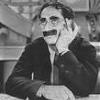I've realised that DEVIL MAY CARE is the literary equivalent of LIVE AND LET DIE. That's Eon's LIVE AND LET DIE, not Fleming's.
Let me explain: both DMC and LALD feature a Bond who's no longer a spring chicken and who also seems to have become a parody of himself. At the same time, all the Fleming boxes are ticked (except for Q, unless Q does appear in DMC and I've simply forgotten about him), and it's all set within vaguely the same timeline as Fleming. On the surface, then, it chimes nicely with the Fleming adventures.
Both DMC and LALD have gritty, even disturbing, plot elements that touch on the issues of hard drugs and social unrest. But both DMC and LALD are also very uneven from a tonal POV, veering from dark, brutal episodes to tongue-in-cheekness and back again. Overall, though, both DMC and LALD leave the reader/viewer with the impression of a work that's overwhelmingly lighthearted, and often far too much so, undercutting the grit and tension. Both DMC and LALD have gaps in logic and plots that meander.
Both DMC and LALD seem "flat" - DMC seems flat because, as has been mentioned a lot, it reads like a barely polished first draft (or a novelization). LALD seems flat because it literally was shot that way, or at least it wasn't filmed in Panavision - combined with a distinctly bargain basement look, it's a departure from the sumptuous widescreen epics of post-GOLDFINGER Bondage.
In both DMC and LALD, the most interesting and developed character is arguably the villain. The ball is somewhat dropped when it comes to the leading lady, and Bond himself has curiously little to do - mostly, he seems to just react to events.
Both DMC and LALD are flawed, flimsy offerings that nonetheless must count (for what it's worth) as among the more concentrated collections of Fleming-flavoured Bondage since Fleming's death (by this I mean that both DMC and LALD contain rather more "Fleming" than, say, HIGH TIME TO KILL or THE WORLD IS NOT ENOUGH).
Neither DMC nor LALD is an utter disaster, because A. both have their moments of fun, and B. the world of Bond has given us much, much worse. In the end, though, they're both merely occasionally entertaining mediocrities that serve mostly to remind us of how good classic Fleming and classic Eon are. They're middling potboilers, but as such certainly have their attractions for committed Bond fans such as ourselves.
As zencat puts it, DMC is just fine. Not the best. Not the worst. A perfectly acceptable continuation novel. Still, and while I take his point about hopes being way too high (living's in the way we die

), I must confess that I
did think DMC had a chance of blowing Eon's CASINO ROYALE out of the water in terms of quality. But that's what can happen in the minds of fans when IFP goes and hires a writer of the calibre of Sebastian Faulks.
Will DMC gain in popularity? Who knows? I guess if it turns out to be the final adult Bond novel, or at least the last for some years, its reputation may rise, albeit A. that that would probably only be for rose-coloured-spectacles reasons of false nostalgia, and B. such a thing didn't happen to THE MAN WITH THE RED TATTOO.
But then again DMC has done what the other continuation novels (with the arguable exception of the Higsons, which I don't really feel qualified to discuss, having read only SILVERFIN) didn't, namely broken out of the bubble of Bond fandom and made and impact on the wider world. And, like Amis', Faulks' name will live forever, and for that reason alone DMC will always be remembered and be considered a major footnote in 007 history (unlike, say, THE MAN FROM BARBAROSSA, which is something that I imagine even many Bond fans haven't heard of).
Doesn't make DMC a good book, though, of course.










